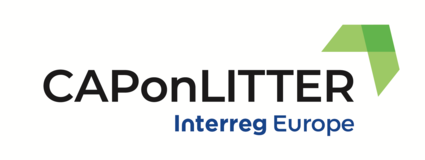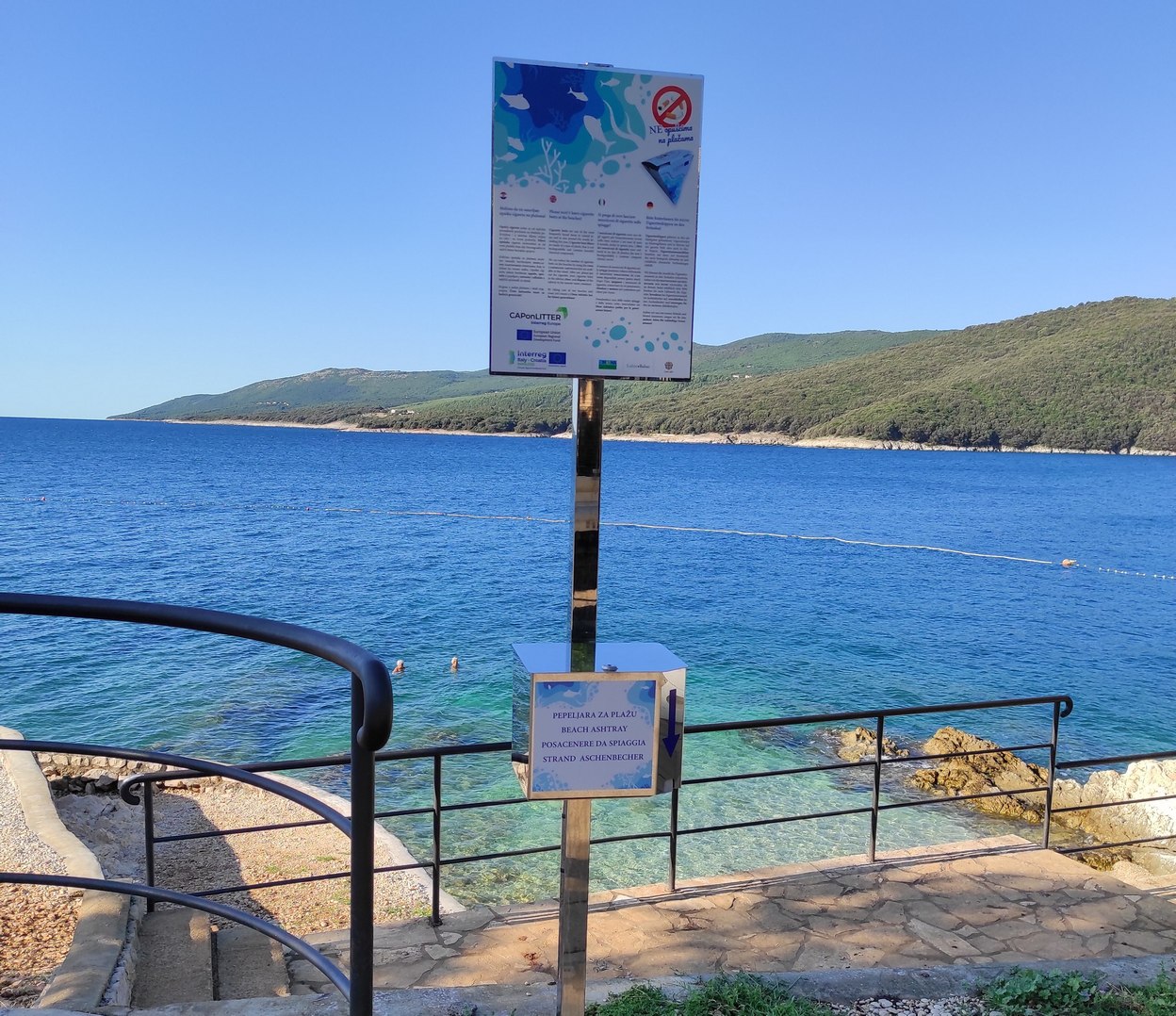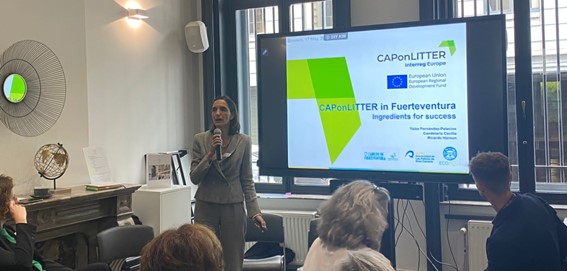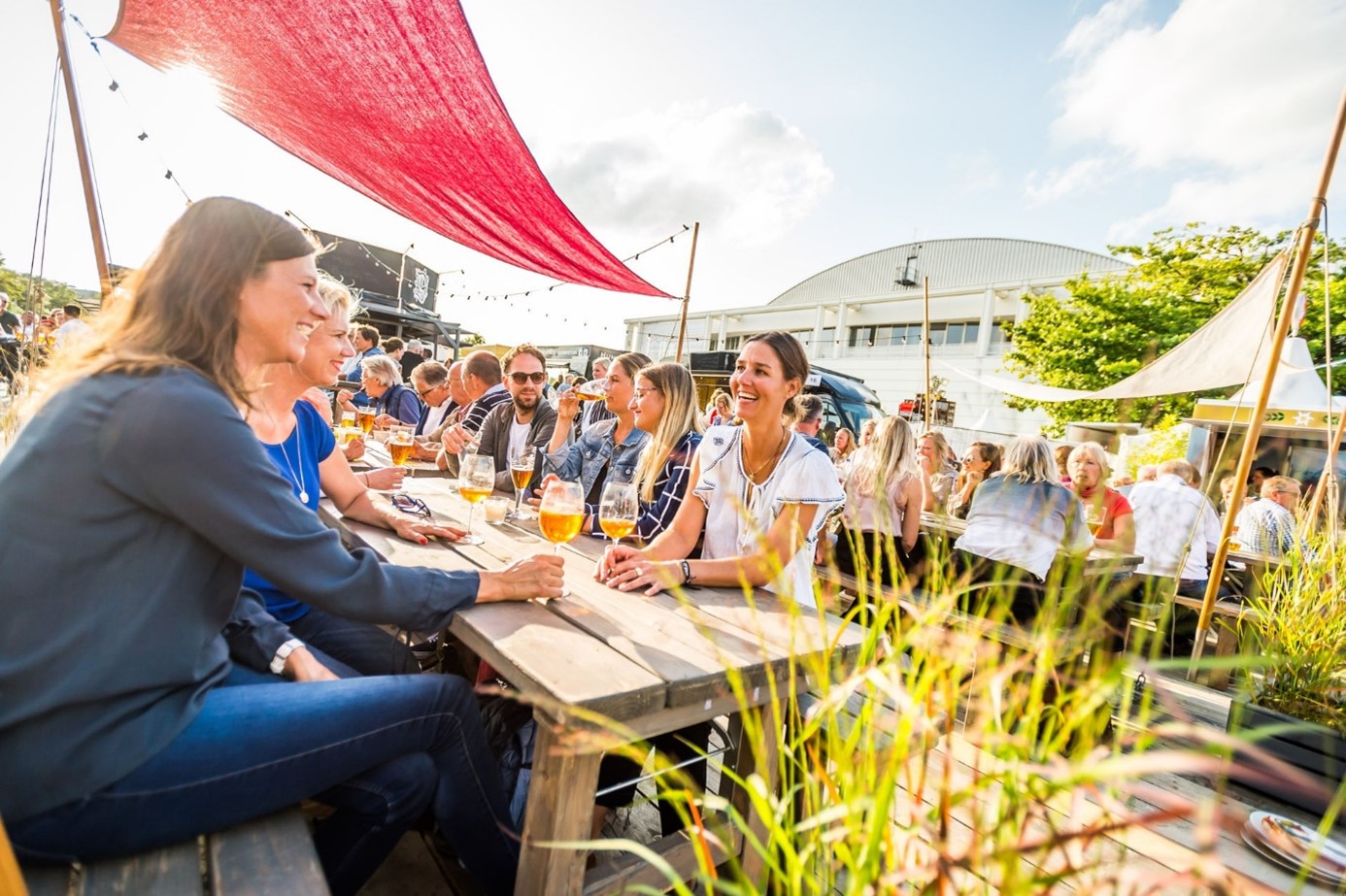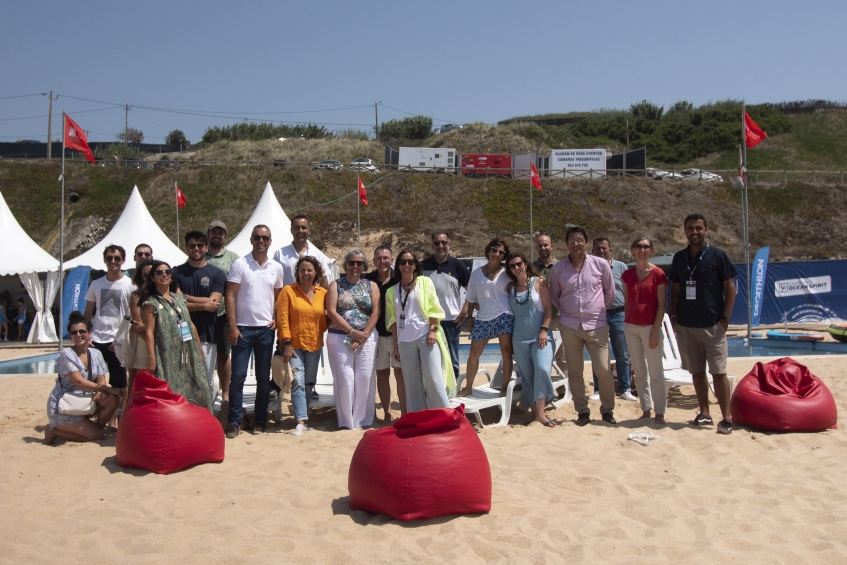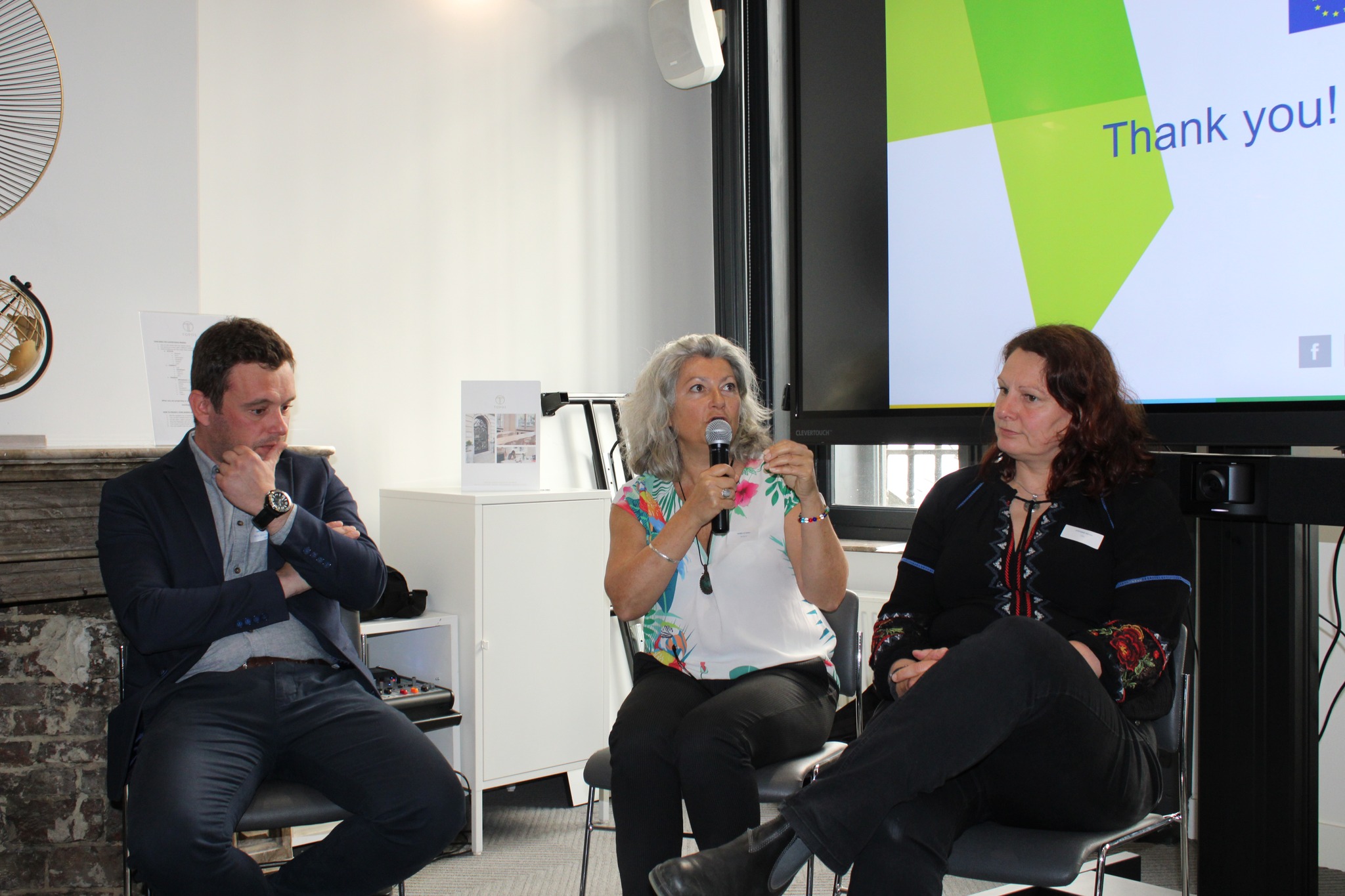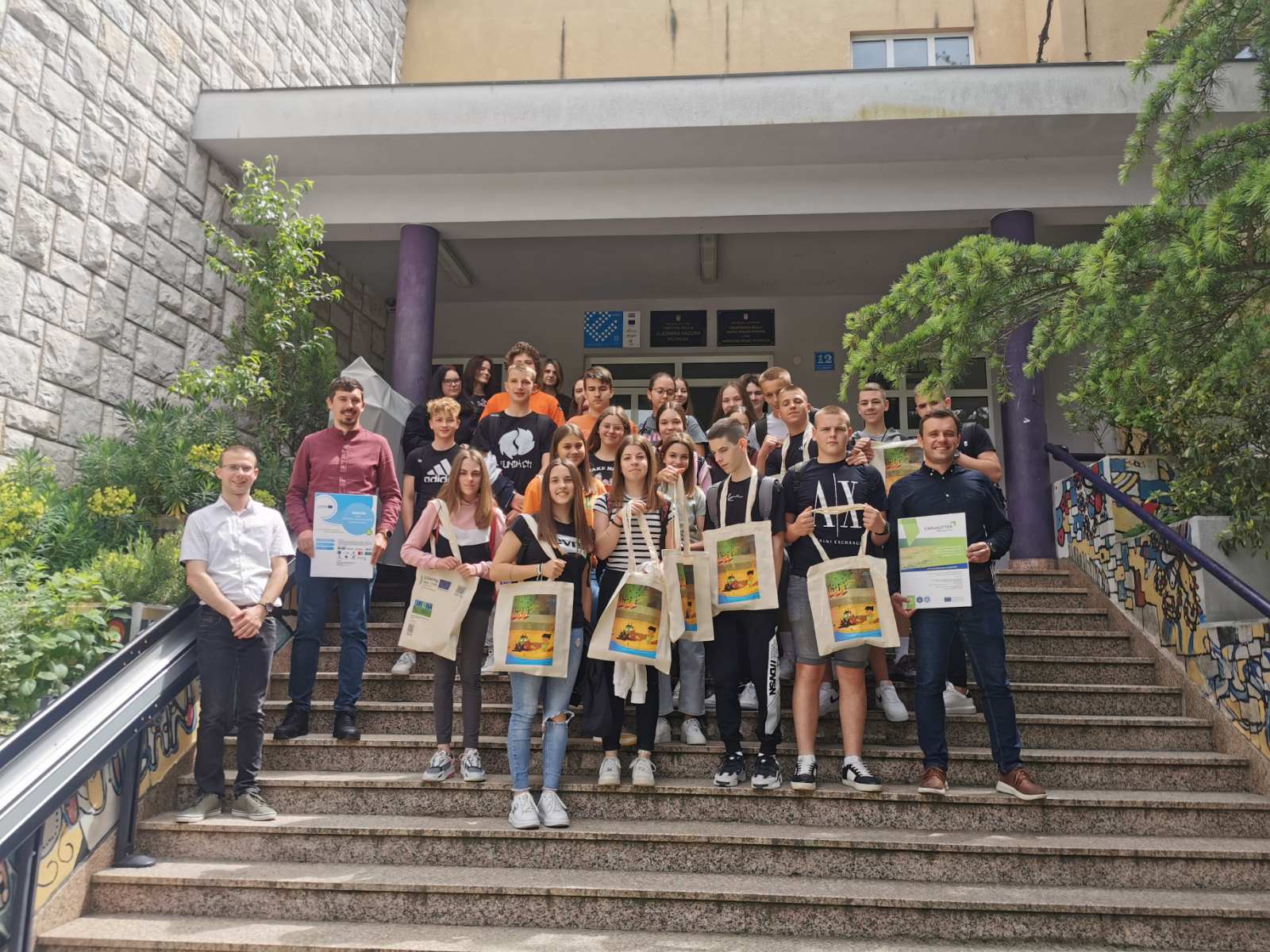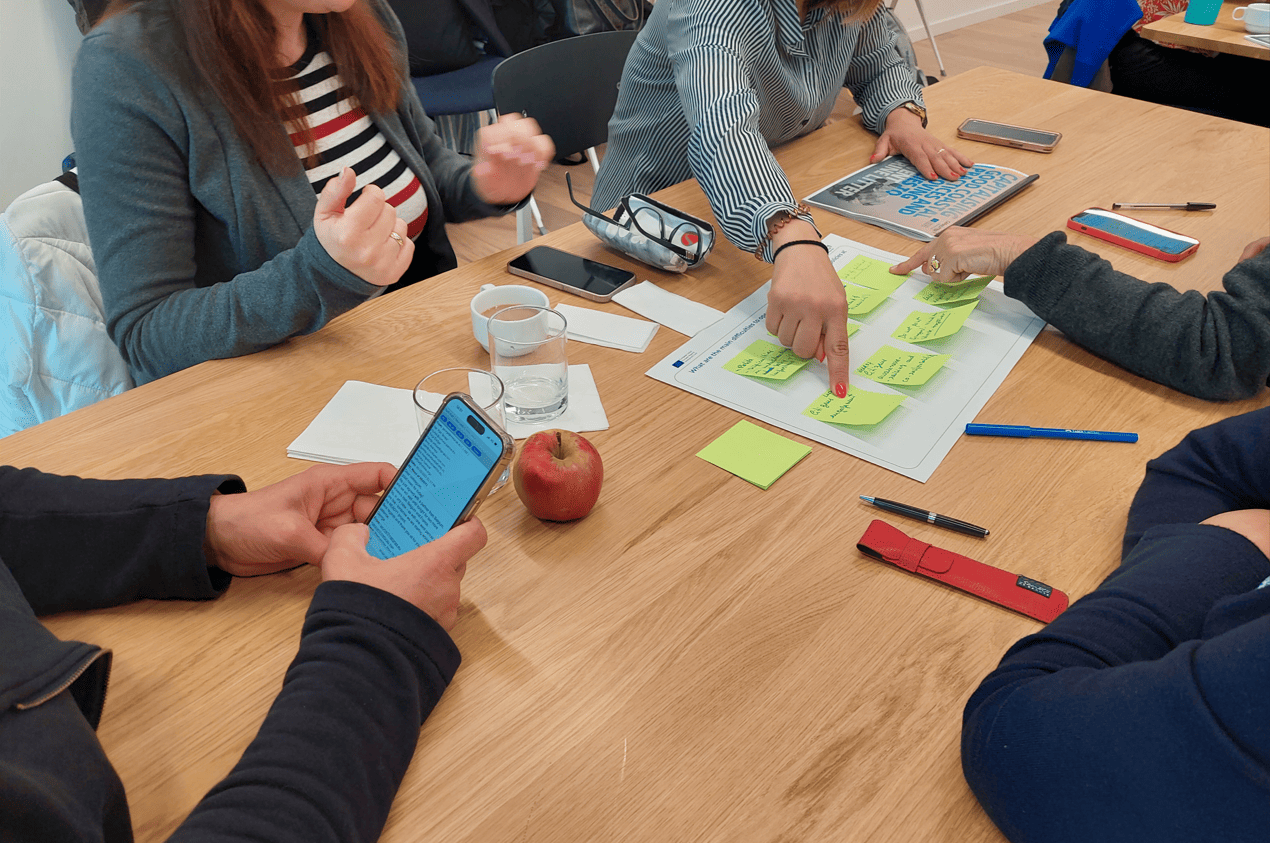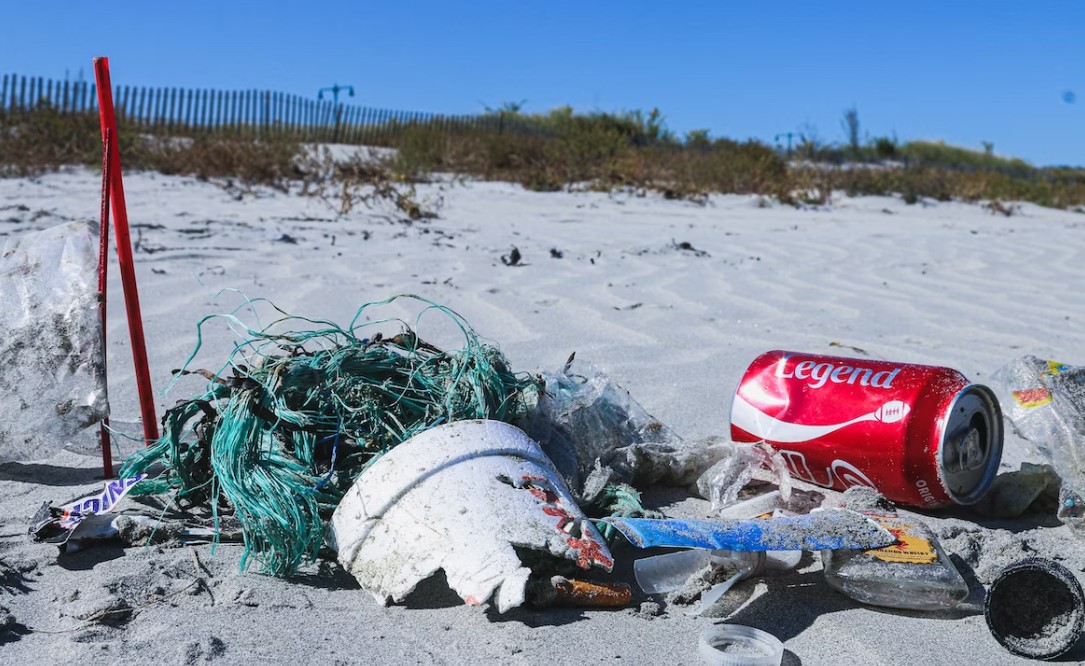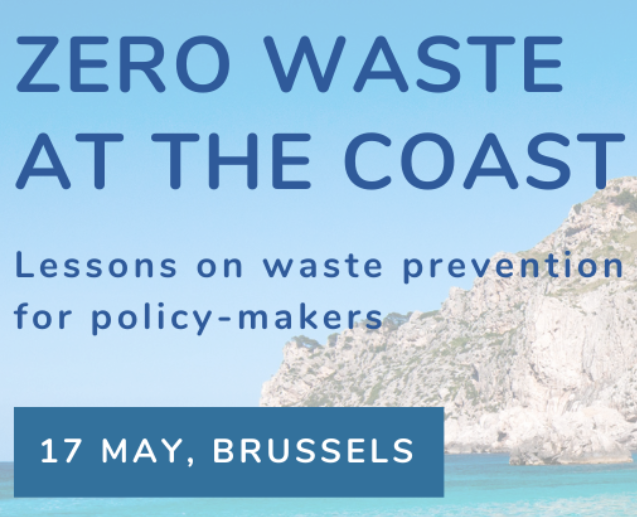The High-Level Dissemination Event entitled "Zero Waste at the Coast" marked the end of Phase 2 of the CAPonLITTER Project - therefore being a great opportunity for the project partners to share their action plans and how the implementation and monitoring of the actions is taking place.
Isabel Moura, from the Portuguese Environment Agency (APA), in representation of the Portuguese Partners - from FCT-NOVA and APA - presented the Action Plan from Portugal.
To achieve zero-waste coastal communities, the four main priorities of the Portuguese Action Plan are:
- Reduce marine litter from recreational activities near the coast and at sea, with direct involvement of all actors
- Improve waste collection infrastructures and equipment
- Promote education and literacy for sustainability
- Reduce marine litter derived from fishing activities
The way forward is through a financing instrument, the Environmental Fund: a Fund from the Ministry of Environment and Climate Action, that makes available a certain budget every year as financial incentive for implementation of the Portuguese Government Environment Policy.
A 750,000€ financing line was opened for PT CAPonLITTER Action Plan to support projects developed by municipalities individually or in consortium with local non-profit organizations, environmental non-governmental organizations and others, in drawing up zero waste plans in bathing areas.
The specific objectives of the created funding line were then translated into three financial sublines:
1) Subline 1 - "SEA ECOCENTERS" (Zero-waste fishing communities)
- Installation of BIG BINS for fishing gear, nets collection, synthetic materials and single-use plastics associated with fishing activity
- Set of a strategy to improve the recovery and management of the waste streams (better collection, aggregation, recycling and final disposal)
- Set a program for improving literacy, awareness-raising, information and capacity-building for the fishermen community
- Award attribution as recognition and incentive for good practices application
2) Subline 2 - Zero-waste beaches/coastal areas
- Creation and implementation of a municipal strategic plan for zero-waste beaches
- Elaboration of good practice guides for beach operators, retailers and users (locals and visitors) as well as informative maps/leaflets
- Set a program for improving literacy, awareness-raising, information and capacity-building for beach managers/operators, retailers and users
- Recognition for encouraging, promoting and implementing good practices
3) Subline 3 - Zero-waste coastal events (with impacts in bathing areas)
- Creation and implementation of a municipal strategic plan and respective regulations for zero-waste coastal events with an impact on the bathing area (including sustainability and green criteria and indicators for organizers, retailers selection)
- Elaboration of good practice guides for operators, retailers and participants of coastal zero-waste events with an impact on the bathing areas including informative digital tools
- Set a strategy for improving literacy, awareness-raising, information and capacity-building for operators, retailers and users of coastal zero-waste events
- Recognition of the work done on encouraging, promoting and implementing good environment practices
The impact of the CAPonLITTER Project in Portugal goes beyond the Action Plans: during May 2023, by order of the Ministry of Environment and Climate Action, Economy and Sea and Agriculture and Food, a Working Group for Marine Litter was created - and will elaborate the Portuguese Action Plan for Marine Litter.
The CAPonLITTER team will be involved in the process, allowing for a replication of the CAPonLITTER good practices on a much broader level.
